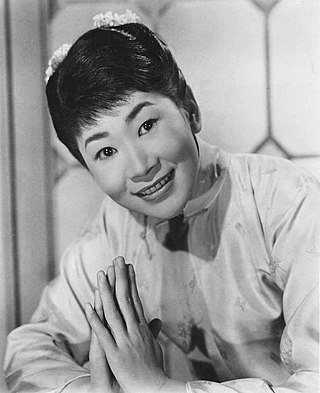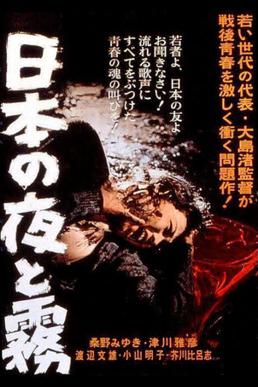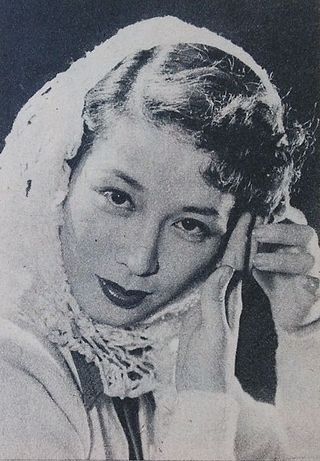
Akira Kurosawa was a Japanese filmmaker and painter who directed 30 films in a career spanning over five decades. He is widely regarded as one of the greatest and most influential filmmakers in the history of cinema. Kurosawa displayed a bold, dynamic style, strongly influenced by Western cinema yet distinct from it; he was involved with all aspects of film production.

The cinema of Japan, also known domestically as hōga, has a history that spans more than 100 years. Japan has one of the oldest and largest film industries in the world; as of 2021, it was the fourth largest by number of feature films produced. In 2011, Japan produced 411 feature films that earned 54.9% of a box office total of US$2.338 billion. Films have been produced in Japan since 1897, when the first foreign cameramen arrived.
The Wonderful Wizard of Oz or The Wizard of Oz most commonly refers to:

Toshiro Mifune was a Japanese actor and producer. A winner of numerous awards and accolades over a lengthy career, Mifune is best known for starring in Akira Kurosawa's critically-acclaimed jidaigeki films such as Rashomon (1950), Seven Samurai (1954), Throne of Blood (1957), The Hidden Fortress (1958) and Yojimbo (1961). He also portrayed Miyamoto Musashi in Hiroshi Inagaki's Samurai Trilogy (1954–1956), Lord Toranaga in the NBC television miniseries Shōgun, and Admiral Isoroku Yamamoto in three different films. He is considered by many to be one of the greatest actors of all time.

Rashomon is a 1950 Jidaigeki drama film directed and written by Akira Kurosawa, working in close collaboration with cinematographer Kazuo Miyagawa. Starring Toshiro Mifune, Machiko Kyō, Masayuki Mori, and Takashi Shimura as various people who describe how a samurai was murdered in a forest, the plot and characters are based upon Ryunosuke Akutagawa's short story "In a Grove", with the title and framing story being based on "Rashōmon", another short story by Akutagawa. Every element is largely identical, from the murdered samurai speaking through a Shinto psychic to the bandit in the forest, the monk, the assault of the wife and the dishonest retelling of the events in which everyone shows their ideal self by lying.

Takashi Shimura was a Japanese actor who appeared in over 200 films between 1934 and 1981. He appeared in 21 of Akira Kurosawa's 30 films, including as a lead actor in Drunken Angel (1948), Rashomon (1950), Ikiru (1952) and Seven Samurai (1954). He played Professor Kyohei Yamane in Ishirō Honda's original Godzilla (1954) and its first sequel, Godzilla Raids Again (1955). For his contributions to the arts, the Japanese government decorated Shimura with the Medal with Purple Ribbon in 1974 and the Order of the Rising Sun, 4th Class, Gold Rays with Rosette in 1980.

Miyoshi Umeki was a Japanese-American singer and actress. Umeki was nominated for the Tony Award and Golden Globe Award and was the first East Asia-born woman to win an Academy Award for acting.

Motoko Yano, better known as Machiko Kyō, was a Japanese actress who was active primarily in the 1950s. Considered one of Japan's early sex symbols, Kyō is best known for her critically acclaimed work with directors Akira Kurosawa, Yasujirō Ozu, Kenji Mizoguchi, Mikio Naruse, Kon Ichikawa, Teinosuke Kinugasa, Hiroshi Teshigahara, appearing in films such as Rashomon, Ugetsu, Gate of Hell, Street of Shame, Floating Weeds, Odd Obsession and The Face of Another.

John Eliot Sturges was an American film director. His films include Bad Day at Black Rock (1955), Gunfight at the O.K. Corral (1957), The Magnificent Seven (1960), The Great Escape (1963), and Ice Station Zebra (1968). In 2013, The Magnificent Seven and 2018, Bad Day at Black Rock were selected for preservation in the United States National Film Registry by the Library of Congress as being "culturally, historically, or aesthetically significant".
A semidocumentary is a form of book, film, or television program presenting a fictional story that incorporates many factual details or actual events, or which is presented in a manner similar to a documentary.
United International Pictures (UIP) is a joint venture of Paramount Pictures and Universal Pictures that distributes their films outside the United States and Canada. UIP also had international distribution rights to certain Metro-Goldwyn-Mayer (MGM) and United Artists (UA) films when MGM was part of the venture and also distributed Disney films in certain territories until 1987. In 2001, MGM left UIP, and signed a distribution deal with 20th Century Fox's overseas arm. The company formerly distributed DreamWorks Pictures releases internationally as well until late 2005.

Escape at Dawn is a 1950 Japanese anti-war film directed by Senkichi Taniguchi. Co-written by Taniguchi and Akira Kurosawa, the film is based on Story of a Prostitute by Taijiro Tamura. The film revolves around a tragic affair between a soldier involved in the Manchurian campaign and a prostitute.

Three Came Home is a 1950 American World War II film directed by Jean Negulesco, based on the memoirs of the same name by writer Agnes Newton Keith. It depicts Keith's life in North Borneo in the period immediately before the Japanese invasion in 1942, and her subsequent internment and suffering, separated from her husband Harry, and with a young son to care for. Keith was initially interned at Berhala Island near Sandakan, North Borneo but spent most of her captivity at Batu Lintang camp at Kuching, Sarawak. The camp was liberated in September 1945.

Night and Fog in Japan is a 1960 Japanese drama film directed by Nagisa Ōshima. It deals with the contemporary Zengakuren opposition but also evokes the 1950 protests against the Anpo treaty; this political content is related to the particular approach of memory and interpersonal dynamics of social movements in the film.

Chikage Awashima was a Japanese film and stage actress.
The following are lists of films produced in Japan in the 1950s:

Tadashi Imai was a Japanese film director known for social realist filmmaking informed by a left-wing perspective. His most noted films include An Inlet of Muddy Water (1953) and Bushido, Samurai Saga (1963).

Tokyo File 212 is a 1951 spy film directed by Dorrell McGowan and Stuart E. McGowan. George Breakston wrote the film's script and co-produced it with Dorrell McGowan jointly under the banner of their newly formed Breakston–McGowan Productions and Japanese Tonichi Enterprises Company. Californian lawyer Melvin Belli executive-produced the feature while composer Albert Glasser provided the film's score.

Daiei Film Co. Ltd. was a Japanese film studio. Founded in 1942 as Dai Nippon Film Co., Ltd., it was one of the major studios during the postwar Golden Age of Japanese cinema, producing not only artistic masterpieces, such as Akira Kurosawa's Rashomon (1950) and Kenji Mizoguchi's Ugetsu (1953), but also launching several film series, such as Gamera, Zatoichi and Yokai Monsters, and making the three Daimajin films (1966). It declared bankruptcy in 1971 and was acquired by Kadokawa Pictures.

Sejarah Film 1900–1950: Bikin Film di Jawa is a 2009 history of the cinema of the Dutch East Indies written by Misbach Yusa Biran. It was published by Komunitas Bambu in collaboration with the Jakarta Arts Council and well received. The book was written by Biran before his death, three years later.




















